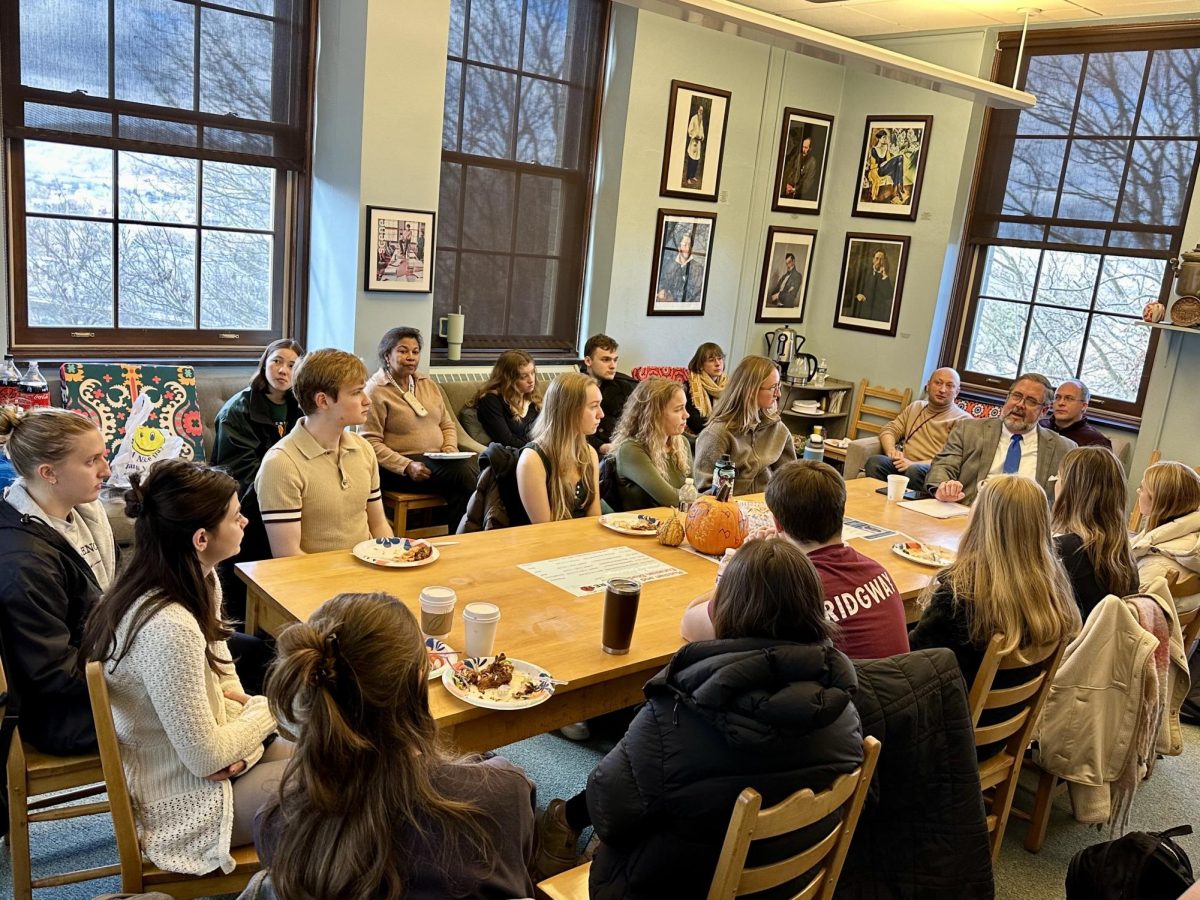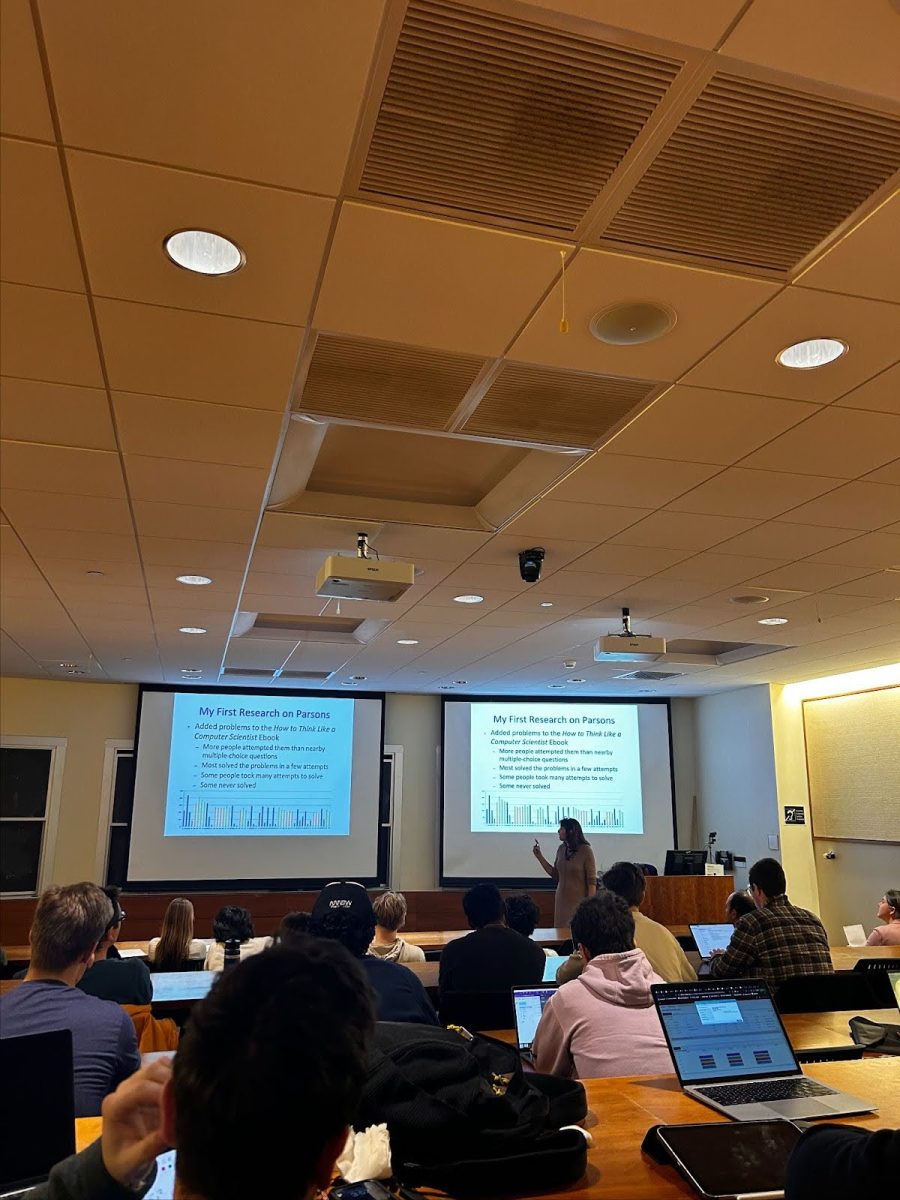The Colgate University Center for Women’s Studies hosted Assistant Professor of English Ariel Martino for her discussion on “Comrades Passing Through: Salaria Kea and Leftist Disillusionment” on Tuesday, Nov. 5, as part of their weekly Brown Bag event series.
Martino opened her talk by discussing various slave narratives, including the narrative pamphlet of Salaria Kea, written in 1938. Kea was among the only Black nurses to serve in the Spanish Civil War. Kea traveled from New York to Spain, convinced that global anti-fascism efforts would stimulate the fight against Jim Crow laws in the United States. Kea’s autobiographical testimony challenges literary conventions, and her third person narration promotes a sense of community that engaged a wider audience. Martino commented on Kea’s choice of perspective.
“This document immediately troubles our sense of authorship,” Martino said.
Writing in the third person, Kea occupies a peripheral role that creates room for her readers to intimately engage with the text’s ideas and sentiments. She decentralizes herself for the benefit of the audience. Martino highlighted the importance of this rhetorical device and how it connected back to the writer’s morals.
“Kea suggests that collective action in Harlem could inspire collective activism in Spain,” Martino said.
Martino discussed the social prerequisites for autobiographical narration in activist literature, expressing admiration for Kea, who understood that the activist is a small cog in the larger social justice machine.
The lecture encouraged sophomore Maddie Theveny to explore the subject further.
“I had never known much about Kea or the leftist movement in the early twentieth century,” Theveny said. “Martino’s talk inspired me to research Kea and the Spanish Civil War further, and I hope to discuss both in class.”
Martino’s dedication to preserving Kea’s legacy is driven by the lack of widespread knowledge of the writer and activist’s life. Kea’s work was suppressed by her white counterparts and dismissed by larger audiences who deemed her work a failure. This systemic erasure inspired a sense of purpose and urgency in Martino’s preservation efforts.
“Kea is somebody who was forgotten and erased from the civil rights movement narrative,” Martino said. “She is an important reminder that I have to be reflexive as I am thinking about her or writing about her.”
Sophomore Jay Adolphe appreciated the chance to learn about someone new.
“It’s always amazing hearing from faculty at Brown Bags because it makes the discussions feel so much more intimate,” Adolphe said. “I was unaware of Salaria Kea before the talk but I’m extremely interested in her and her work and wish to learn more about her in the future.”












